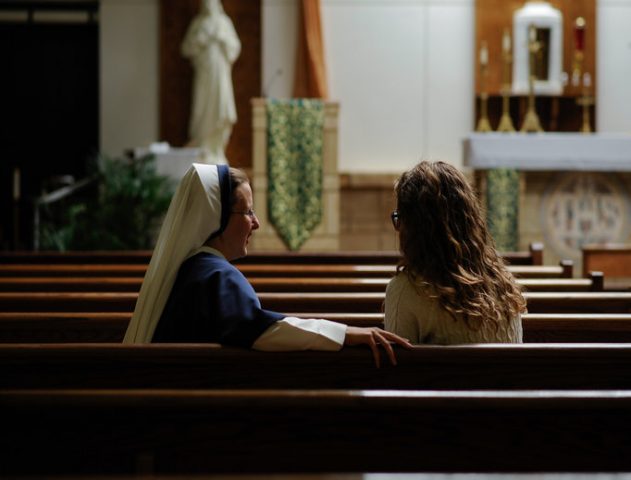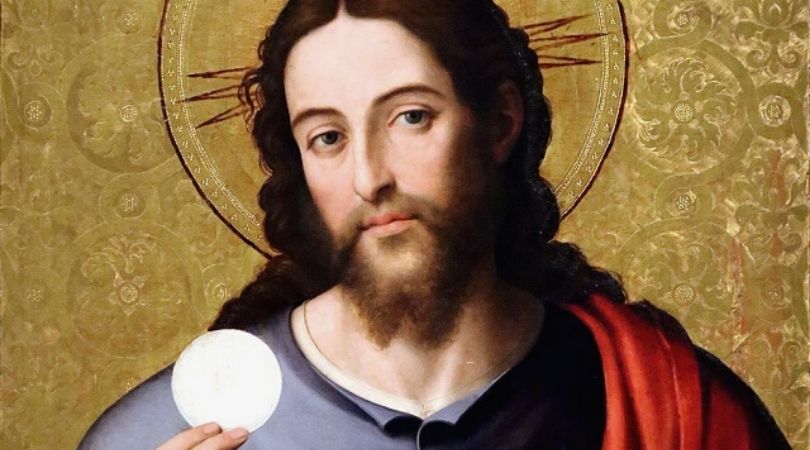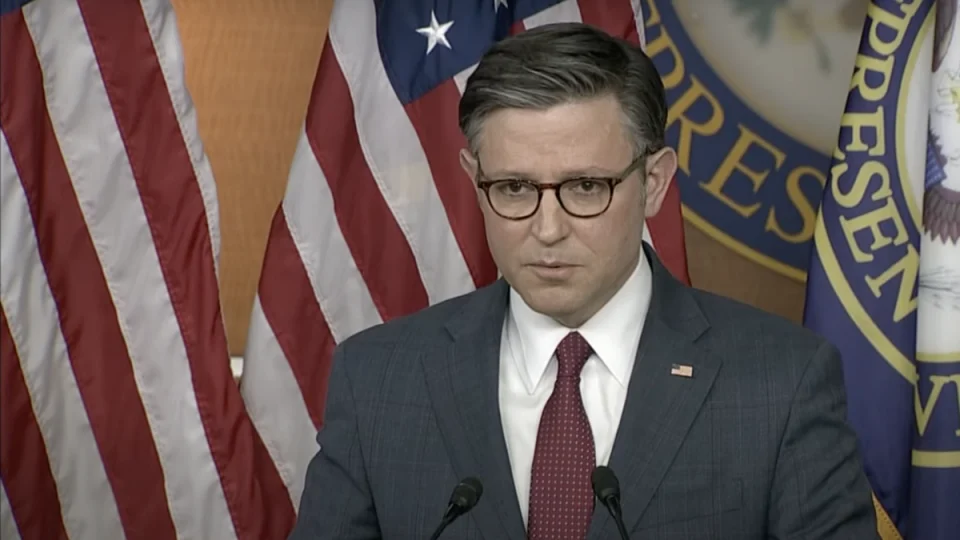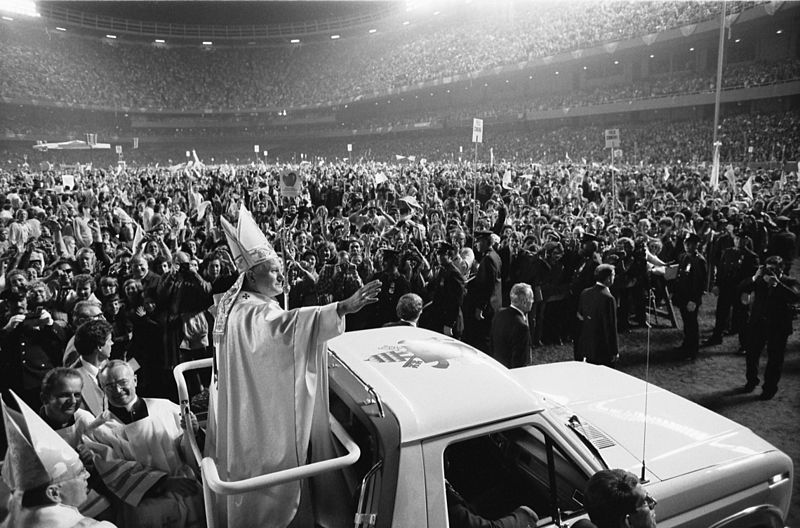The consultative processes for the upcoming synod is providing the Church a frank snapshot of its relationship with Catholic young adults.
By Peter Jesserer Smith, National Catholic Register, 11/16/17
WASHINGTON — For the past several months, dioceses and Catholic organizations across the country consulted youth and young adults on their most pressing concerns and their relationship with the Church, as part of the preparation for the upcoming 2018 Synod on Young People, Faith and Vocational Discernment in Rome.
Gathered in Baltimore for their fall general assembly, members of the U.S. Conference of Catholic Bishops listened as conference president Cardinal Daniel DiNardo of Galveston-Houston delivered a summary report with a sobering appraisal of the Church’s relationship with young people ranging in age from 16 to 29 years old.
“Young people frequently cited economic struggles, poverty, drug and alcohol abuse, isolation, anxiety and societal pressures as the top challenges,” he said. “They also expressed a desire for the Church to accompany them through these concerns.”
Cardinal DiNardo said the report confirmed that young people are disaffiliating at greater rates than historically seen, and youth and young adult ministers are struggling to connect.
According to the Pew Research Center, the number of religiously disaffiliated or “Nones” in the United States has risen rapidly from an estimated 36.6 million people in 2007 to an estimated 55.8 million in 2014. Approximately 35% of millennials (the generation born between 1981 and 1996) are “Nones” and may identify as atheists, agnostics or believe “nothing in particular.”
Cardinal DiNardo also emphasized that youth and young adults desire to be “intentionally invited into leadership roles” and said they are looking for mentorship, spiritual direction and support during periods of transition in life. But young people kept “frequently” repeating they are not receiving this from the Church.
Cardinal DiNardo added that many young people, especially African-American, Native-American, and Hispanic and Latino youth, feel the Church is not addressing the challenges in their communities involving racism, prejudice, mental health or immigration laws. He noted the reports showed the Church has a serious lack of resources committed to youth and young-adult ministry for these communities. He said promising efforts to promote vocations, to priesthood, marriage and the call to holiness for young adults in their 20s need more sustained resources, as well.
At the same time, Cardinal DiNardo explained, the reports showed that the Church in the U.S. has been able to develop talented youth and young-adult ministers and shows “best practices” are emerging.
“The reports reveal some untapped opportunities that exist to connect young people to a relationship with Christ, the Church and her mission and to their vocational pathway,” he said.
Cardinal DiNardo said the report is being sent to the Vatican Synod Office overseeing the synod preparations.
The Vatican requested each bishops’ conference to send one to three delegates aged 16-29 to meet with Pope Francis in March as part of the preparatory process. Cardinal DiNardo said the bishops’ Committee on Laity, Marriage and Family Life, headed by Archbishop Charles Chaput of Philadelphia, and the Committee on Clergy, Consecrated Life and Vocations, headed by Cardinal Joseph Tobin of Newark, New Jersey, will together select three youth representatives.
“More work needs to be done to build up our relationship with youth and young adults, and we can be hopeful this synod process will contribute to those efforts and bear much fruit,” he said.
Catholic News Agency reported Nov. 15 that four bishops will participate at the synod itself as representatives of the U.S. Conference of Catholic Bishops (USCCB) — Cardinal DiNardo, Archbishop Chaput and Archbishop José Gomez and Auxiliary Bishop Robert Barron, both of Los Angeles.
Honest Snapshots
Paul Jarzembowski, assistant director of youth and young-adult ministries for the USCCB’s Secretariat of Laity, Marriage, Family Life and Youth, told the Register that what happens with millennials will have an intergenerational ripple effect on the Church.
Unlike previous generations, which had a pattern of many young people leaving the Church, but then returning as they became stable, formed families and sought sacraments for them, now often losing that demographic means losing their descendants, as well.
Jonathan Lewis, the Archdiocese of Washington’s director of young-adult ministry and evangelization, told the Register the data from the diocesan consultation process helps give an “honest snapshot” of the Church’s relationship with young people.
Overall, many Catholic young adults neither feel invested in their parish nor feel their parish is invested in them. But he said the surveys are primarily reflecting the situation of the Catholic young adults in regular contact with the archdiocese. Most respondents attend Mass every week; a third went to Mass more than once a week.
“We’re not talking about the ‘drop-in Catholic.’ We’re talking about those who have given their lives to Jesus and made an intentional commitment to stand against the culture and to grow in their relationship with God in the life of the Church.”
While the Church has many new initiatives to engage youth and young adults, Lewis said small-group experiences (similar to what RCIA provides catechumens) could provide a way for young adults to have an experience of parish friendships, having people pray with them and for them, and have regular spiritual direction and accountability as they discern their path to holiness.
He said a renewed form of the sodalities, confraternities and associations that once defined parish life before the Second Vatican Council might provide the “authenticity” in relationships that young adults seek.
In the Diocese of Bridgeport, Connecticut, Bishop Frank Caggiano told the Register that the results from their consultative process showed that youth across all demographics are experiencing a phenomenon happening with young people all over the globe. Bishop Caggiano sees the landscape of spiritual pain and isolation in a variety of forms, including the opioid epidemic and the rise of suicide, particularly among youth.
But many young people continue to disaffiliate from Church, rather than turn to it. Bishop Caggiano said many young people see a division between religion and science or reason: If science and reason can answer the question, they figure they do not need religion; if not, then they turn to religion.
“Religion almost becomes the god of the gaps,” explained Bishop Caggiano, not the Catholic vision of faith and science in harmony together.
But another factor is young adults’ overall lack of confidence in existing institutions.
A survey of millennials, conducted in 2016 by Ernst & Young and the Economic Innovation Group, found only 25% had “a great deal” of confidence in organized religion. The only two institutions with more than 50% confidence for millennials were the military and colleges and universities.
Accompaniment and Engagement
Auxiliary Bishop David O’Connell of Los Angeles has worked in parishes, both as a priest and bishop. He told the Register he believes young people will respond if the Church will accompany and engage them as Pope Francis requested. The bishop added that young people need “good experiences” of faith, prayer and worship from the Church.
He said his experience also resonates with what the Vatican’s preparatory document stated: Young people are open to lectiodivina (prayerful contemplation of Scripture) in community and learning how to pray with others.
“It does talk about how young people are so disconnected and isolated, but it does mention that if they’re engaged, they respond with great generosity, and I have found that also to be true.”
Peter Jesserer Smith is a Register staff writer.







